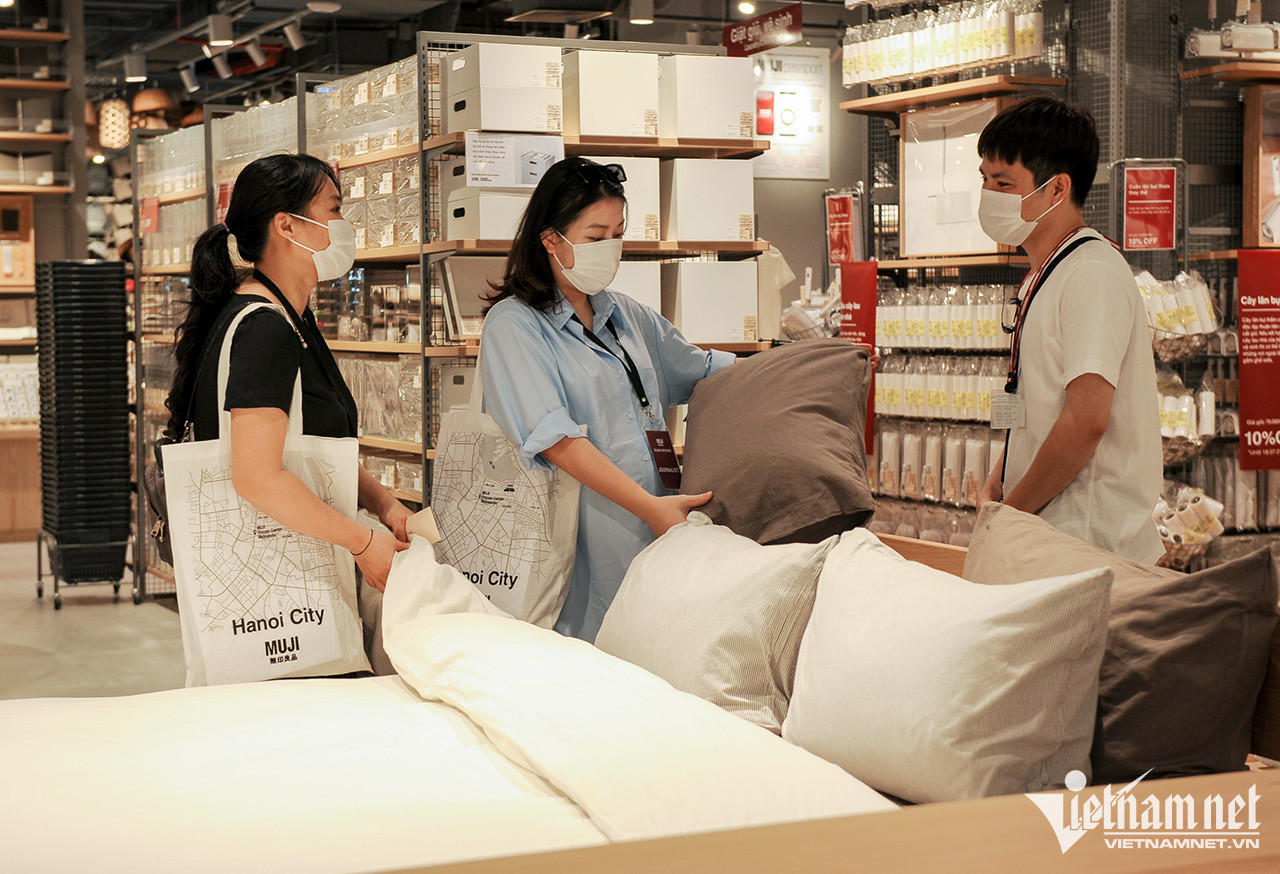
Japanese stores are attractive for their buffet food counters providing bread, sweet cakes, coffee, sushi and Japanese food, with spacious seats and conveniences such as charging stations and wifi.
Young people can also order at kiosks which allows them to buy food quickly and make payment easily while using e-wallets.
While many retail chains are facing difficulties after the pandemic, Japanese enterprises have prospered. In May, Aeon opened a department store and supermarket in Cau Giay district in Hanoi.
As for small and medium supermarkets, Aeon developed the MaxValu supermarket chain in Hanoi. There are seven supermarkets of this kind, and the figure is expected to reach 20 by year-end.
Aeon is seeking locations to open a new shopping mall, slated for 2024. It plans to open 30 shopping centers, mostly in Hanoi, HCM City, Da Nang, Thua Thien - Hue and Hai Phong.
Another Japanese brand, Uniqlo, has opened many new stores in Vietnam. CEO of Uniqlo Vietnam Osamu Ikezoe said that from now to the year end, Uniqlo will open three more stores in Hanoi. Uniqlo opened its first store in HCM City in 2019 and now has more stores in Hanoi, HCM City and Hai Phong.
Muji has three stores in Vietnam, including two in Hanoi and one in HCM City, selling over 5,000 products.
Soc & Brothers, a retail chain for mothers and kids, has opened its fifth store in the country, providing both Japanese and high-end products.
Japanese make-up retail chain, Matsumoto Kiyoshi, has opened its first store in Vietnam. Its managing director in Vietnam Hiroki Miyaoka said that 10-15 more shops may open in the next five years.
Other Japanese retail brands such as Ministop, FamilyMart, and 7-Eleven are expanding their operation in Vietnam.
With a market value of $170 billion and expected growth rate of 10 percent in the next five years, Vietnam is a target of foreign retailers, including Japanese.
According to the Japan External Trade Organization’s (JETRO) report, with a young dynamic population, and a population of 100 million, Vietnam has high potential.
Japan’s export turnover to Vietnam has increased by 17 percent, among the top 10 countries, putting Vietnam among Japan’s important markets. Nearly 60 percent of Japanese enterprises show interest in retail, service and consumer goods.
A recent McKinsey report said that Vietnamese are shopping more at supermarkets, convenience stores and hypermarkets, as well as online.
Tadashi Yanai, president and CEO of Fast Retailing, the holding company of Uniqlo, said Vietnam has great potential and will be one of the world’s largest consumption markets.
Meanwhile, Furusawa Yasuyuki, CEO of Aeon Vietnam, said the biggest goal of the Japanese retailer in 2022 is regaining the growth rate of the pre-pandemic period.
The advantage of Japanese retailers is not only in the variety of goods, but also in operating rules that are followed meticulously from the selection of goods to display to presentation to service.
Duy Anh